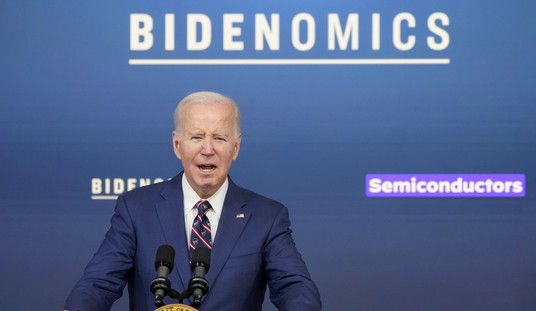WASHINGTON – Lawmakers lauded Boston area law enforcement officials for their response to the Boston Marathon bombing attacks while criticizing federal agencies for failing to probe one of the suspects despite warning signs.
Watertown Police Chief Ed Deveau, Sgt. Jeffrey Pugliese and former Boston Police Commissioner Ed Davis testified at a House Committee on Homeland Security hearing last week on the aftermath of the bombings – one year ago today – that killed three and wounded hundreds more.
Four days after the attack, police officers got into an early morning firefight with bombing suspects Tamerlan and Dzhokhar Tsarnaev.
“That seemingly quiet overnight shift suddenly turned into a war zone. For the first time in America, police officers were attacked with guns and bombs and it happened on a quiet backstreet in my community,” Deveau said.
Deveau said his officers thought they were pursuing carjacking suspects when the lawmen were attacked with explosives and gunfire.
Pugliese said he heard over the radio that officers were following an alleged carjacked vehicle in the Boston suburb of Watertown. He then decided to drive in that direction to provide any additional assistance the officers might need.
On his way to the area, Pugliese said he heard over the radio that the individuals in the stolen car had fired at police officers. By the time Pugliese arrived at the scene, he heard gunfire and exited his vehicle.
“Within moments, I heard an explosion,” Pugliese said. Authorities later determined that the Tsarnaevs had built homemade explosives, which they threw at police through the shootout.
Pugliese was attempting to physically detain Tamerlan Tsarnaev when Dzhokhar ran over his brother in a car during his escape. Tamerlan Tsarnaev died of his wounds at a hospital, and Dzhokhar Tsarnaev was found several hours later, badly wounded and hiding in a boat.
Several committee members praised Boston’s response to the bombing.
“There’s no doubt that Boston’s handling of the marathon will serve as a model for other cities,” said Rep. Bill Keating (D-Mass.). This year’s race will be run on April 21.
Committee Chairman Rep. Michael McCaul (R-Texas) said had it not been for the efforts of the Boston police “our nation could have been further terrorized.”
“If it wasn’t for these heroic acts of bravery, New York City could have been hit again,” he said.
The hearing also focused on the committee’s report on the response to the bombings that condemned federal intelligence agencies for failing to scrutinize the activities of one of the alleged bombers in the months before the attacks.
McCaul said the committee found in its investigation that “red flags and warnings” had been missed and that “systematic problems” led to Tamerlan Tsarnaev falling off the FBI’s radar.
“We found that Tamerlan was on the radar of the FBI and somehow dropped off. We found that Tamerlan traveled to Dagestan, known for its Chechen terrorists,” he said. “We also found that unfortunately customs, FBI, and the [intelligence community] somehow missed it. We now know that a check of his public social media would have shown indicators such as jihadist video postings. His mosque had seen escalating behavior, as well. It likely would have been clear that he was becoming more and more of a threat to the community.”
McCaul said federal agencies should have done a better job in providing information to the Boston police.
“State and local police have a strong role in counter-terrorism. They know the streets better than anybody and they know the local threats. The Boston Police Department should have been given more information throughout the entire process. They must know the terror threats in their own backyards. This process in my judgment has to change,” he said.
McCaul said that both the FBI and the Department of Homeland Security have already begun implementing the recommendations in the committee’s report.
Some lawmakers raised concerns that federal officials held back important information, including a day’s delay in the public release of photos of the bombing suspects.
New York Rep. Peter King (R) said NYC officials were upset to learn several days after Dzhokhar Tsarnaev was captured that Times Square had been a target.
“What is the protocol if you do find a possible additional attack that’s being planned?” King asked. “Should that police department be notified? It could have been Philadelphia or anyone along the Atlantic Coast.”
Davis said he thinks that police departments “may be holding the information too closely in the interest of prosecution or having justice be the only thing that we think about. Because in addition to justice, there is the issue of public safety.”
He told the committee that level of information shared between federal and local law enforcement has been “critical” to the department’s success in fighting terrorism.
“Make no mistake about this, Boston Police, Watertown Police, none of us could have had the success we had without the larger community,” Davis said.
Nevertheless, he urged the committee to mandate more information sharing.
Deveau said small police departments like his should have access to the Boston area’s Joint Terrorism Task Force – one of many task forces around the country led by the FBI and the Justice Department.
“When something like this happens, we need to have access to that table,” Deveau said. “We need to have a seat right away.”
Dzhokhar Tsarnaev has pleaded not guilty to a 30-count indictment. He is scheduled to stand trial in federal court in November. Federal prosecutors are pursuing the death penalty for the attacks.
The anniversary is also marked by the release of a report by the Inspector General for the Intelligence Community that “identified a few areas where broader information sharing between agencies may have been required, or where broader information sharing in the future should be considered.”
Though the full document is classified, the Directorate of National Intelligence released a 32-page summary of the report that notes two years before the attacks “the FBI received information from the FSB alleging that Tamerlan Tsarnaev and Zubeidat Tsarnaeva were adherents of radical Islam and that Tamerlan Tsarnaev was preparing to travel to Russia to join unspecified underground groups in Dagestan and Chechnya.”
“In September 2011, the FSB provided the Central Intelligence Agency (CIA) information on Tamerlan Tsarnaev that was substantively identical to the information the FSB had provided to the FBI in March 2011. In October 2011, the CIA provided information obtained from the FSB to the National Counterterrorism Center (NCTC) for watchlisting purposes, and to the FBI, Department of Homeland Security (DHS), and the Department of State for their information. Upon NCTC’s receipt of the information, Tamerlan Tsarnaev was added to the terrorist watchlist,” the report continues.
“Three months later, Tamerlan Tsarnaev traveled to Russia, as the lead information stated he was preparing to do. However, Tsarnaev’s travel to Russia did not prompt additional investigative steps to determine whether he posed a threat to national security.”
A Justice Department review found that the FBI counterterrorism agent in charge of checking out the allegations on Tsarnaev didn’t contact local law enforcement, visit his mosque, or interview his wife or friends. The agent also didn’t ask Tsarnaev’s parents about his travel or jihadist sympathies.
Senate Homeland Security and Government Affairs Committee Chairman Tom Carper (D-Del.) said his panel will be holding a hearing later this month to further delve into the intelligence inspector general’s report.
“As I often like to say, the road to improvement is always under construction,” Carper said. “…While nothing we do will be able to bring back the loved ones lost or restore the lives of the victims that are forever altered, we owe it to the victims and their friends and families to learn as much as we can from this tragedy and work to prevent terror events like this from happening again.”









Join the conversation as a VIP Member